Base camp established, it's all looking very green.
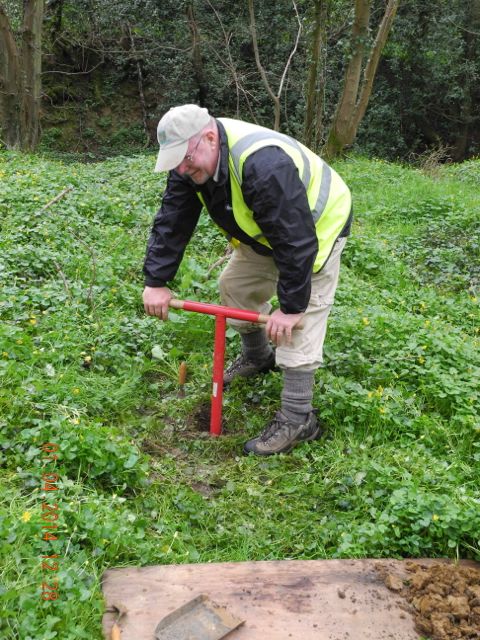
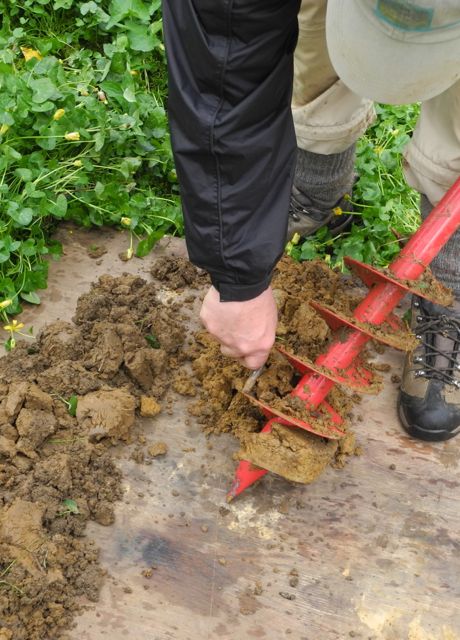
Coring underway, we got down to a depth of around a metre but it was hard work.
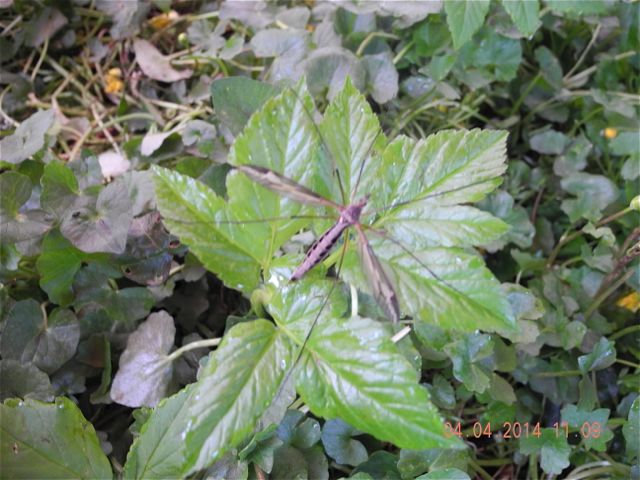
We're always interested in the local wild life. I thought Daddy Long Legs only appeared in the autumn but Peter assures me that this is the largest variety
found mainly in woodland and known as Tipula maxima.
We were also able to begin
again on serious excavation of the site of the Second Sluice which
involved starting to remove a nondescript spread of rubble, probably
debris from Christopher's quarrying operations.
Underneath this in the corner between our two main walls was a very
nice deposit of post-medieval pottery and another corner on a slightly
different alignment. All very intriguing.
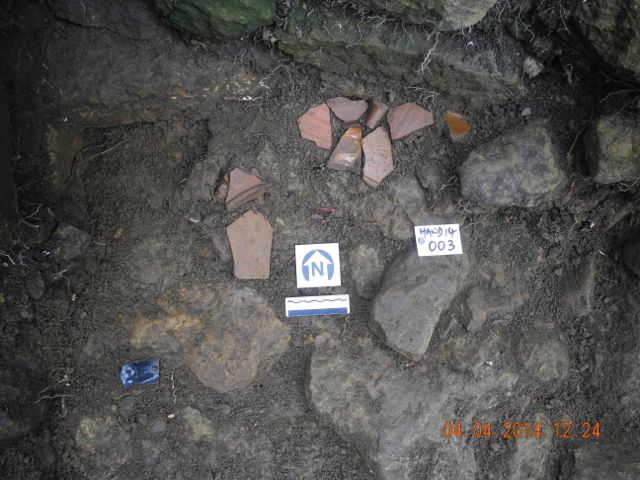
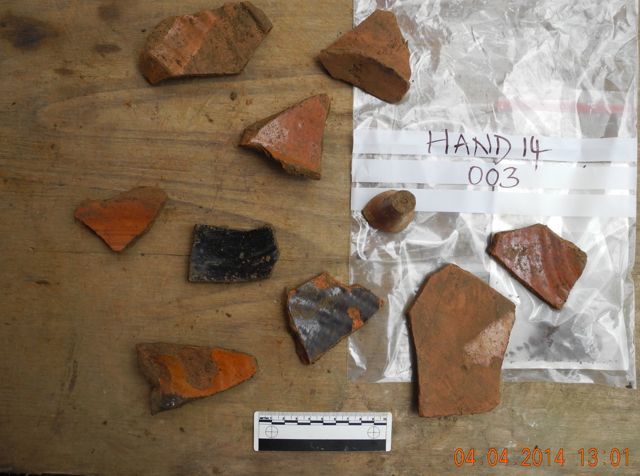
The pottery spread tucked into the corner and spread out after lifting.
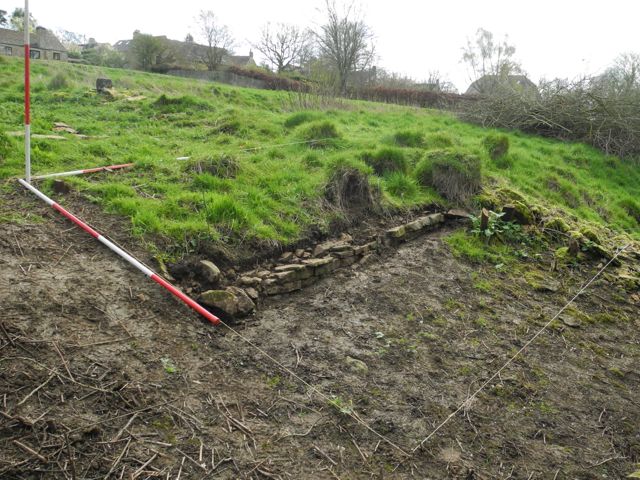
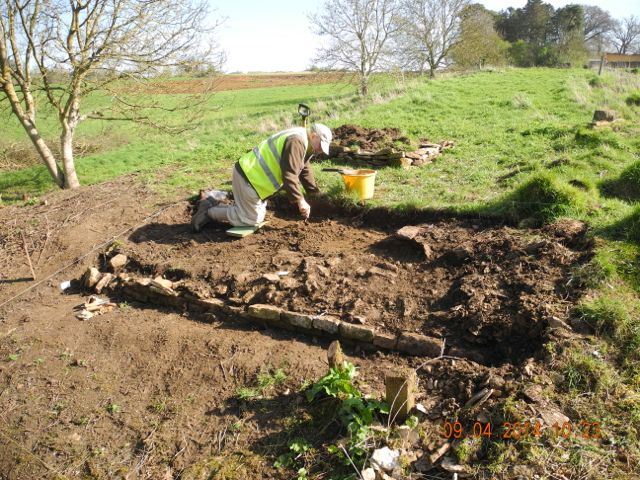
The new area ENA14/C marked out and under excavation, notice the massive anthills courtesy of Lasius flavus the Yellow Meadow Ant (Thanks Peter).
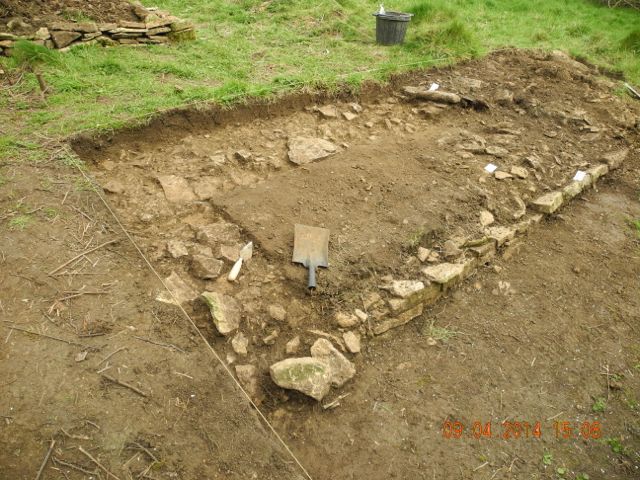
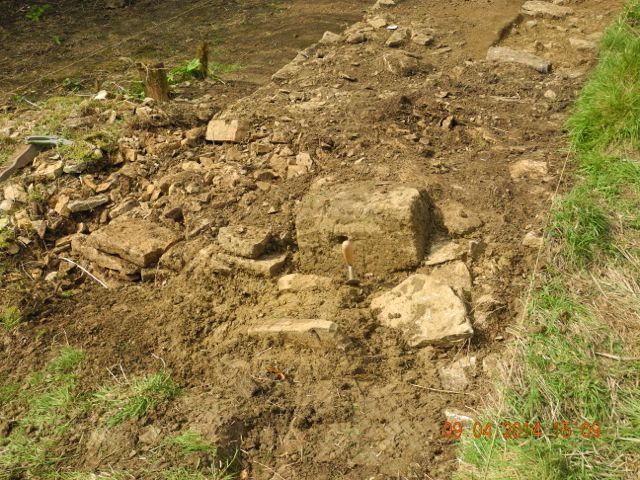
Early stages but clearly there are structures associated with the end of the ramp. Still in place on the downhill wall a large lump of atypical ironstone with a possible socket hole!
The week beginning Monday 14th. saw the start of a concerted effort at Hanwell to progress work down on the moated area. this involved opening up a new area, HANE14, a 6 by 2 metre trench aligned east-west across the eastern edge of the moated platform. We began by stripping off the minimum depth of turf and topsoil on the basis that there could be ephemeral garden features quite close to the surface. Our coring activities had revealed little in the way of evidence for what toady we would call hard landscaping so a start was made to trowel clean the underlying subsoil and begin the search for the kind of discolourations and changes in texture that could signal earlier planting, fence lines or a revetment.
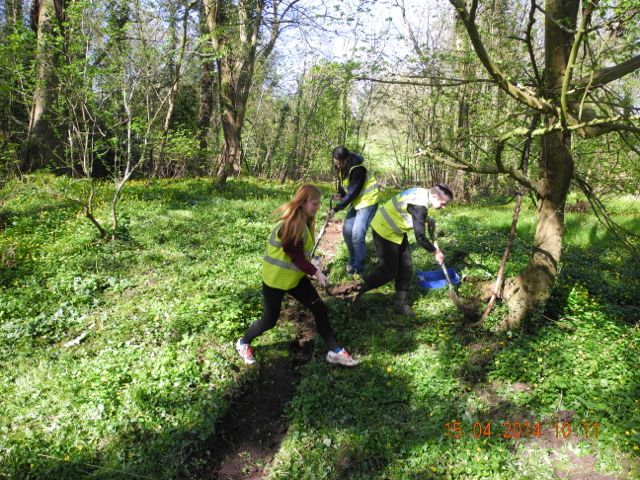
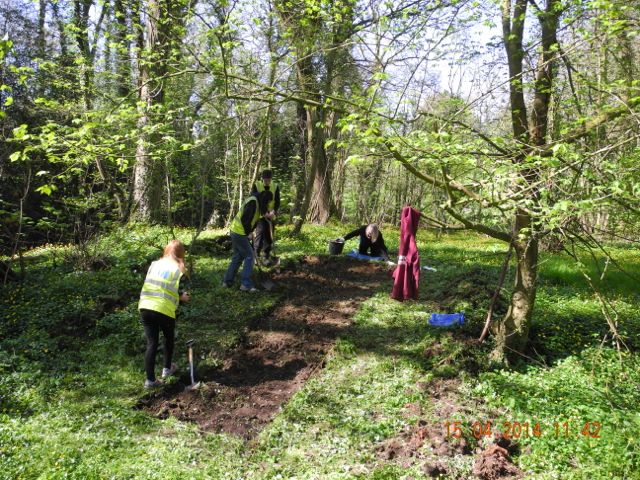
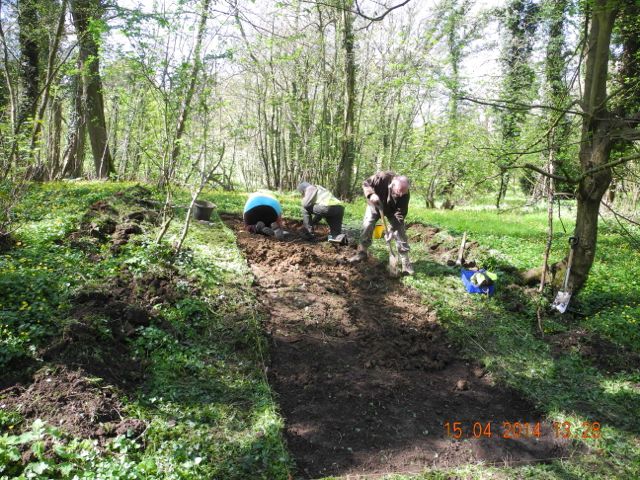
Work starts on HANE as Isobel, Sabrina and Samuel leap into action and later on Verna joins them. In the afternoon Peter, Mike and Viv start troweling back...
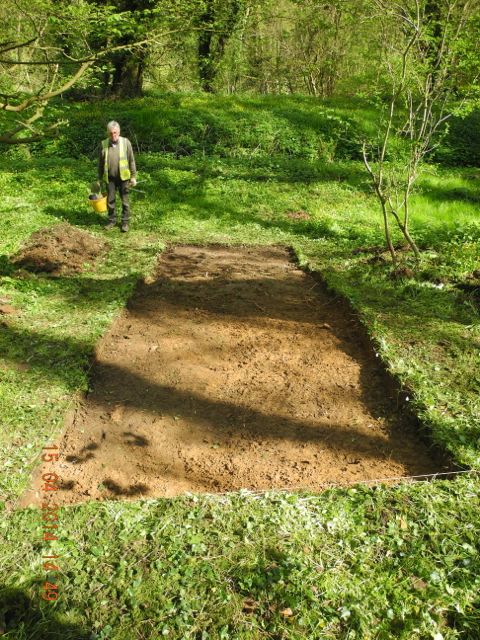
... and at the end of the day Mike wonders if it was really worth it.
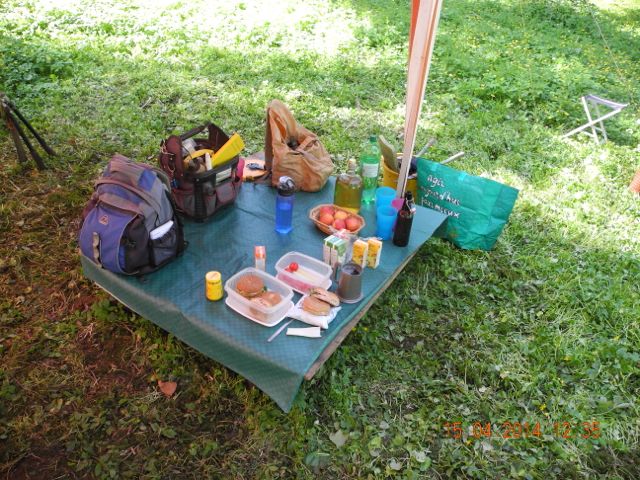
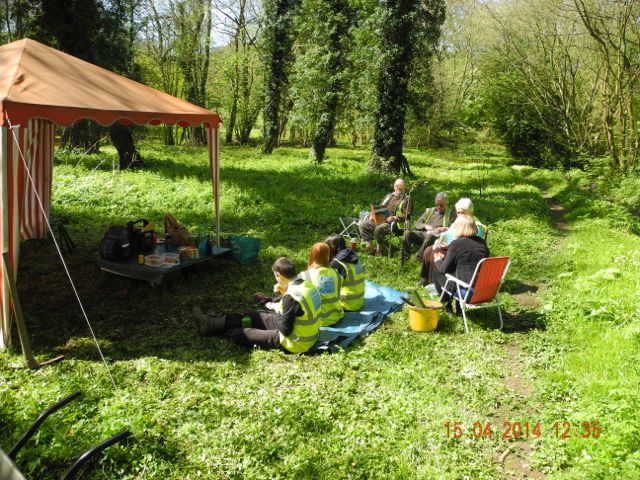
Of course we always look after the creature comforts of our volunteers: lunch time on Tuesday.
On the site of the so-called second
sluice we continued to make progress shifting rubble and
gradually unpicking the rather complex ways in which the various walls
came together. As part of this we examined one or two very large stones
scattered around the immediate vicinity. Some of these may have been
left over from the recent construction of the little stone bridge but
one, when we turned it over, had a fine example of the sort of chased
grooving into which lead embedded iron masonry clamps were fitted.
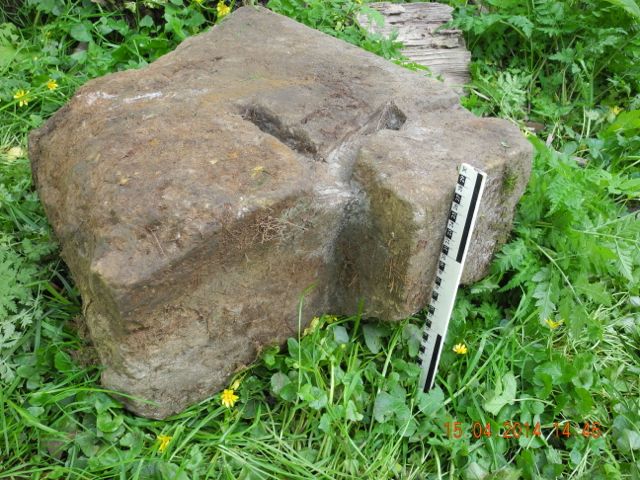
Large scale architectural fragment, I doubt if this will travel far.
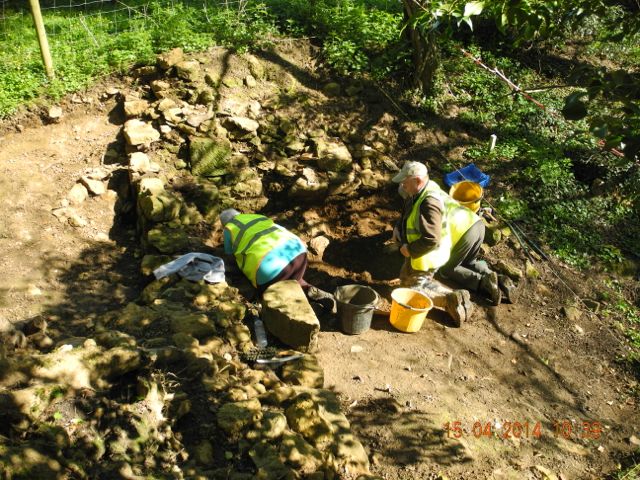
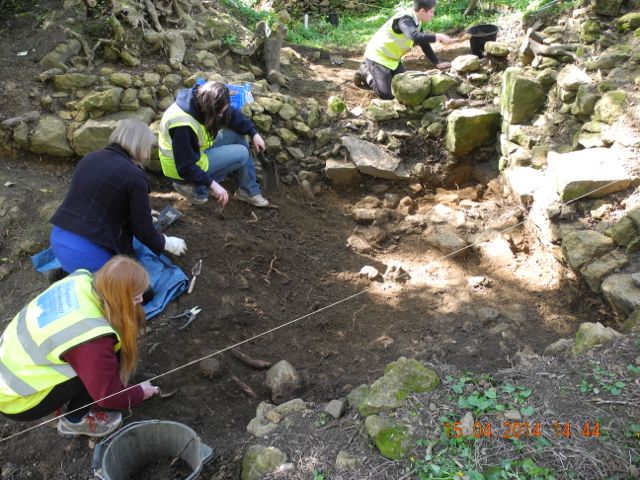
Rubble clearing and cleaning underway.
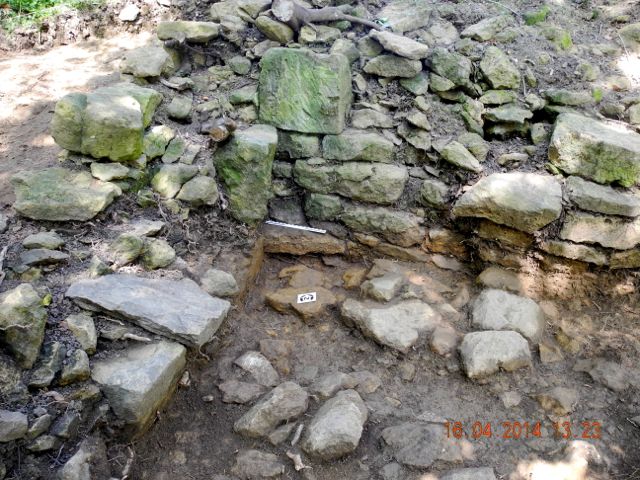
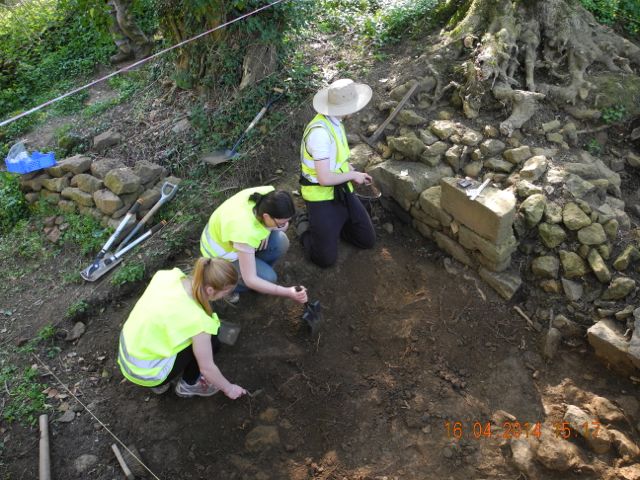
The north-west corner, there's so much happening here, just not sure what yet. Isobel, Sabrina and Samuel work on after the 3.00 p.m. deadline.
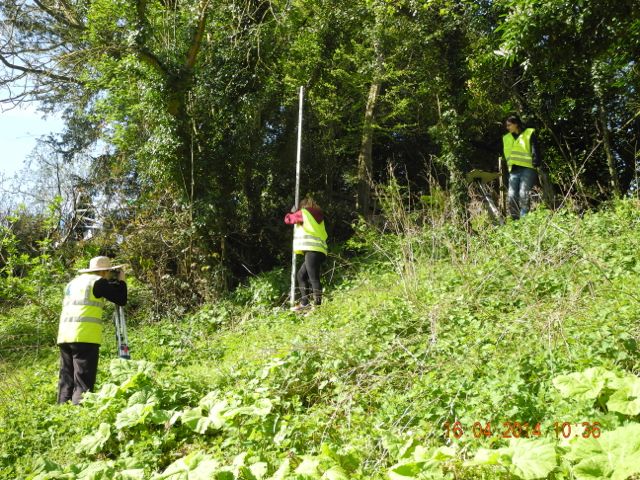
Digging isn't everything, the epic transect of the Great East Terrace, teamwork to the fore.
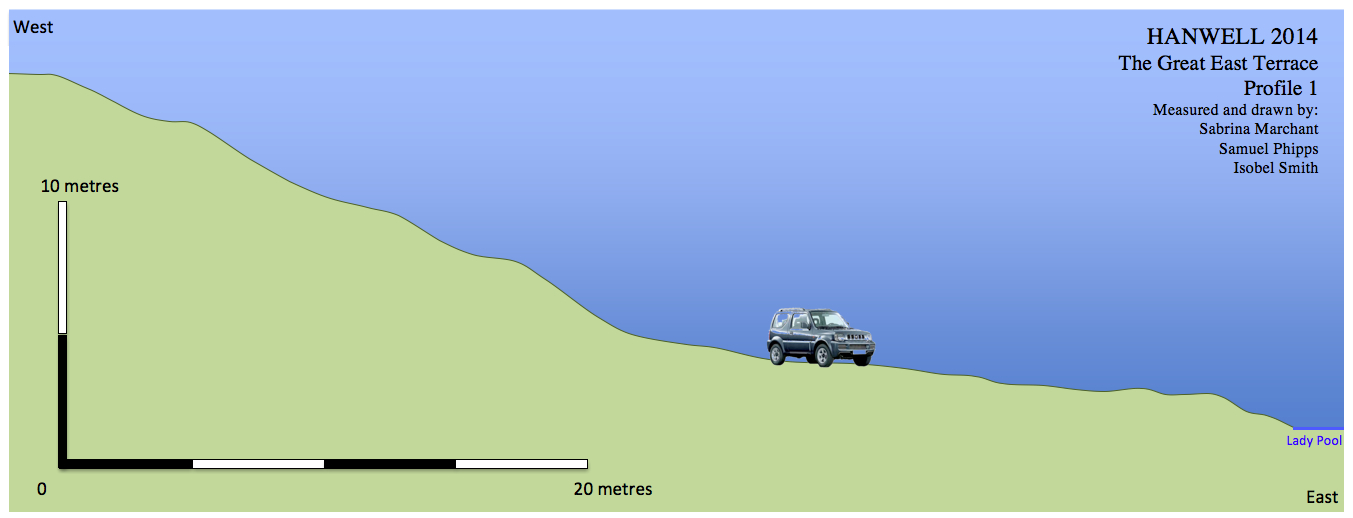
And here is the first part drawn up.

Large scale architectural fragment, I doubt if this will travel far.


Rubble clearing and cleaning underway.


The north-west corner, there's so much happening here, just not sure what yet. Isobel, Sabrina and Samuel work on after the 3.00 p.m. deadline.
With extra help on hand it was a
good opportunity to catch up with some leveling and in particular start
measuring and drawing an extended profile which eventually will
longitudinally bisect the whole valley and enable us to see how
different areas relate in terms of their levels. We started on the top
of the level lawn which lay to the east of the castle and from then on
it was downhill all the way.

Digging isn't everything, the epic transect of the Great East Terrace, teamwork to the fore.

And here is the first part drawn up.
Thursday was fairly quiet but on the Friday we were joined by Kathryn and her friend Eve, our Amsterdam contingent and so were able to expose more in the way of stony surfaces. the section over on the edge of moat was also completely cleaned up revealing.... well one or two suggestive patches. We'll leave it for a couple of weeks and give it another scrape. Sometimes quite ephemeral features show up after a little weathering.
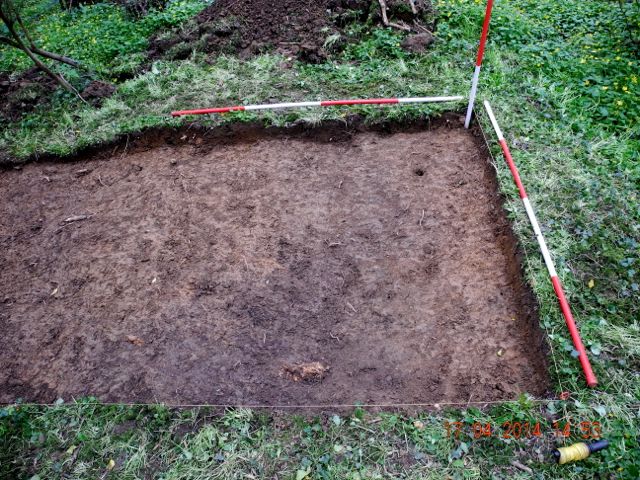
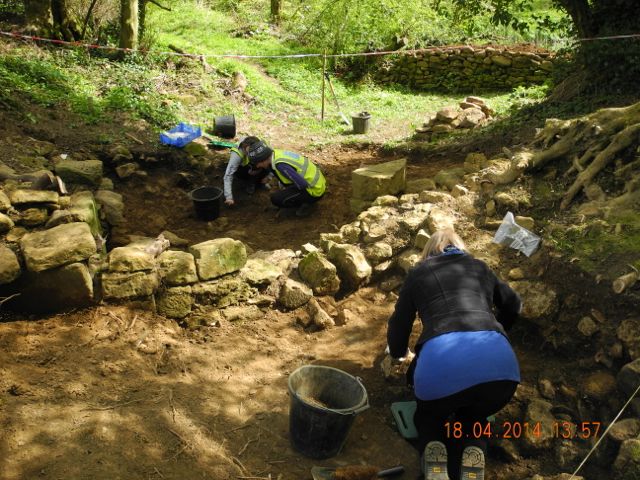
HANE, some patches of darker earth, possibly evidence of planting. Working hard on HAND upstream and downstream of the blocking wall.
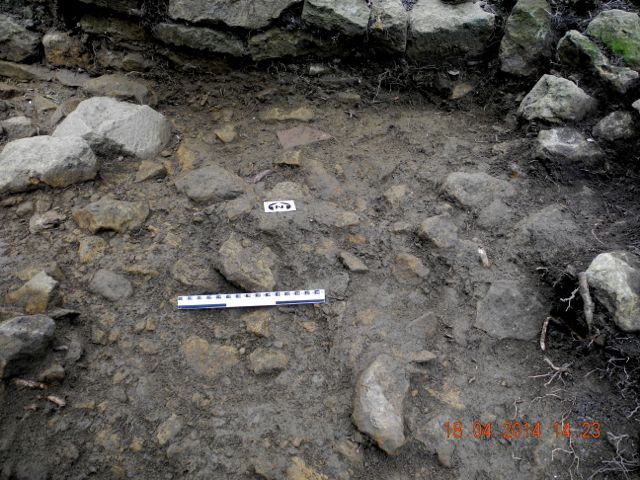
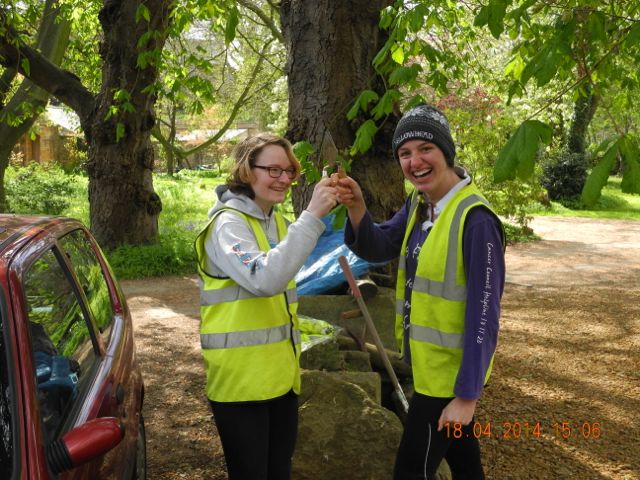
More stony surfaces, plus Eve celebrates with Kathryn her first experience of digging, looks like it went alright.